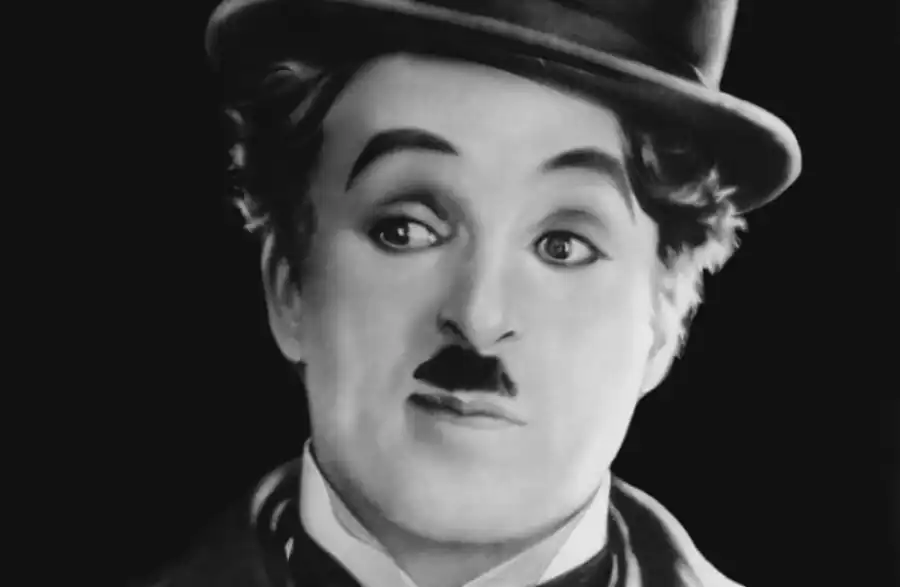Biography & Net Worth Of Charles Chaplin

Biography & Net Worth Of Charles Chaplin
Sir Charles Spencer Chaplin, better known by his stage name as Charles Chaplin, was an acclaimed English comic actor, filmmaker, and composer who gained international recognition during the silent film era.
He became a cultural icon through his beloved “Tramp” persona and was instrumental in shaping early cinema.
Early Life And Education
Sir Charles Spencer Chaplin was born on April 16, 1889, in Walworth, South London, England.
He was the son of Charles Chaplin Sr., a talented vocalist and actor, and Hannah Harriet Pedlingham Hill, professionally known as Lily Harley, an actress and singer.
Chaplin had two half-brothers: Sydney John Hill (Syd Chaplin), from his mother’s previous relationship, and George Wheeler Dryden, from her relationship with composer Leo Dryden.
Due to his family’s financial struggles and early entry into the entertainment industry, Chaplin did not receive a formal education.
Chaplin’s ethnicity was primarily English, with Romani ancestry through his mother’s lineage. His religious beliefs are not publicly known.
Career
Charles Chaplin began his entertainment journey at the age of five when he was called on stage to perform after his mother’s voice failed.
Recognizing his natural talent, he soon became involved in professional performances. At ten, he joined the Eight Lancashire Lads, a troupe of clog dancers, and later toured with Casey’s Circus, where he developed his skills in burlesque performances.
By 18, he had already established himself as a star. In 1908, he joined Fred Karno’s vaudeville troupe, where his performance as a drunken character in Mumming Birds (also known as A Night in an English Music Hall) earned him widespread acclaim and opened doors for further opportunities in the entertainment industry.
Chaplin’s transition to film began in 1910 when he traveled to the United States with Karno’s troupe. His performances caught the attention of film producers, leading to a contract with Keystone Studios in 1913.
Here, he created his iconic “Tramp” character, making his screen debut in Make a Living and later refining the persona in Kid Auto Races at Venice.
Within a year, he appeared in 35 films, quickly gaining popularity. By 1915, Chaplin had moved to Essanay Studios, where he further developed the Tramp’s character and cemented his status as a major film star.
In 1916, he signed with Mutual Film Corporation, becoming the highest-paid actor of his time with an unprecedented salary of $670,000 per year.
His growing success led him to First National Pictures in 1917, where he signed a $1 million contract to produce eight films and established his studio in Hollywood.
In 1919, Chaplin co-founded United Artists alongside D.W. Griffith, Douglas Fairbanks, and Mary Pickford, granting him complete creative control over his projects.
His first film under the studio, A Woman of Paris (1923), was a departure from his usual comedic roles and, though not commercially successful, demonstrated his versatility as a filmmaker.
He went on to create some of cinema’s most enduring classics, including The Gold Rush (1925), City Lights (1931), and Modern Times (1936). With the advent of sound films, Chaplin adapted by producing The Great Dictator (1940), a bold satirical critique of Adolf Hitler that earned both acclaim and controversy.
His later years were marked by political tensions, leading him to leave the United States and settle in Switzerland after his final American film, Limelight (1952). Despite these challenges, Chaplin’s legacy as a pioneering figure in cinema remains unparalleled.
Personal Life
Charles Chaplin was married four times and had a total of 11 children. His first marriage was to actress Mildred Harris in 1918, following a pregnancy scare when she was just 16.
The marriage was short-lived, ending in divorce in 1920, and their only child, Norman Spencer Chaplin, tragically lived for just three days. In 1924, Chaplin married Lita Grey after she became pregnant.
Their union produced two sons, Charles Spencer Chaplin Jr. and Sydney Earl Chaplin, but the marriage ended in 1927.
His third marriage was to actress Paulette Goddard in 1936, with whom he co-starred in several films, but their relationship ended in divorce in 1942.
Chaplin’s longest and most enduring marriage was to Oona O’Neill, whom he wed in 1943 when she was 18. They remained together until his passing in 1977 and had eight children: Geraldine, Michael, Josephine, Victoria, Eugene, Jane, Annette, and Christopher Chaplin.
Despite the controversies surrounding his personal life, his family life with Oona was marked by stability, and their children went on to have successful careers in various fields, particularly in the arts.
Filmography
Making a Living
Kid Auto Races at Venice
Mabel’s Strange Predicament
A Thief Catcher
Between Showers
A Film Johnnie
Tango Tangles
His Favorite Pastime
Cruel, Cruel Love
The Star Boarder
Mabel at the Wheel
Twenty Minutes of Love
Caught in a Cabaret
Caught in the Rain
A Busy Day
The Fatal Mallet
His New Job
A Night Out
The Champion
In the Park
A Jitney Elopement
The Tramp
By the Sea
Work
A Woman
The Floorwalker
The Fireman
The Vagabond
One A.M
The Count
The Pawnshop
Behind the Screen
The Rink
Easy Street
Net Worth
Sir Charles Chaplin’s net worth was estimated to be at least $100 million at his death in 1977, equivalent to approximately $400 million to $415 million today when adjusted for inflation.
His immense wealth resulted from his pioneering career as an actor, filmmaker, and composer and his business acumen, including co-founding United Artists, which granted him greater creative and financial control over his films.

{{comment.anon_name ?? comment.full_name}}
{{timeAgo(comment.date_added)}}
{{comment.body}}
{{subComment.anon_name ?? subComment.full_name}}
{{timeAgo(subComment.date_added)}}
{{subComment.body}}